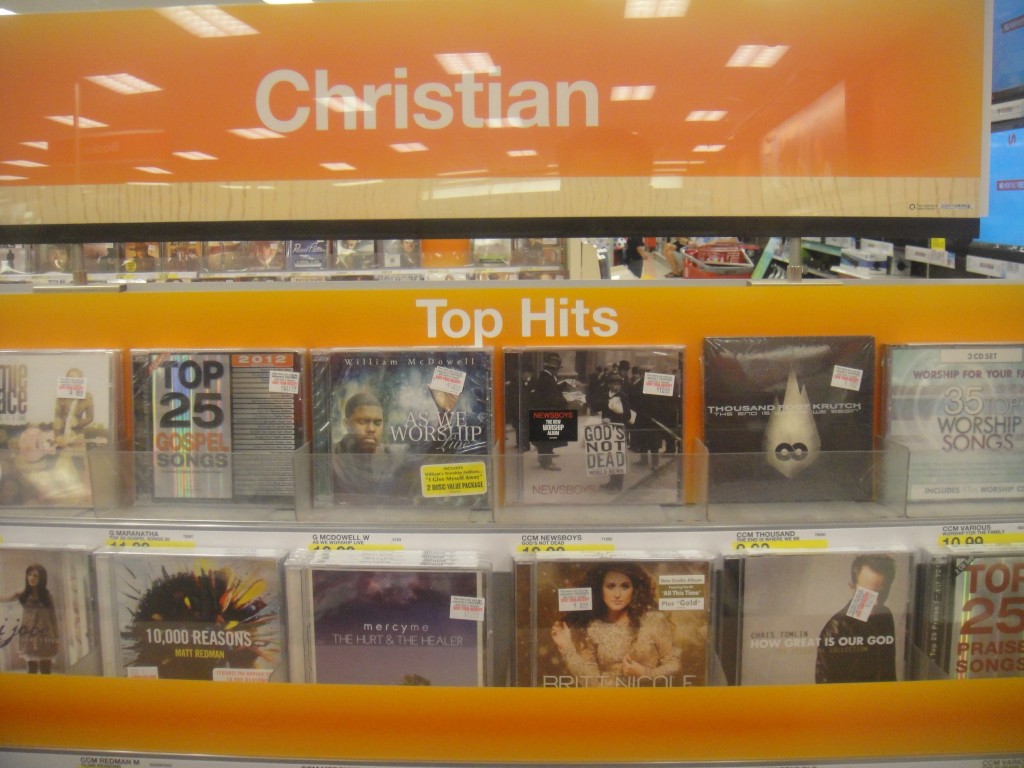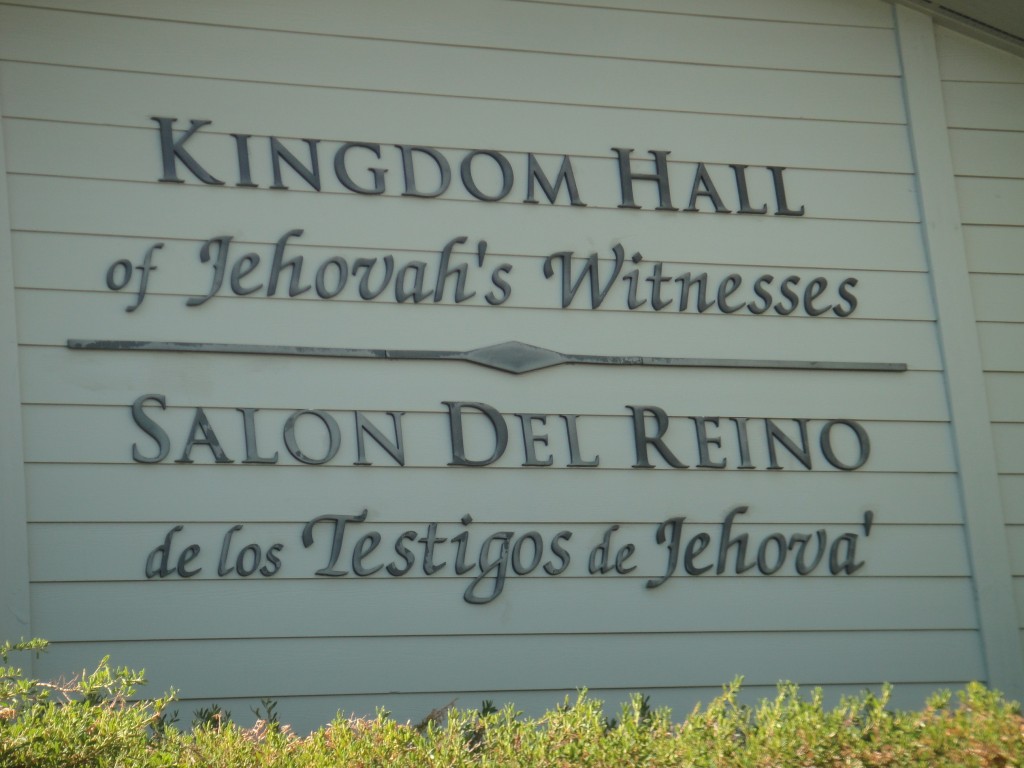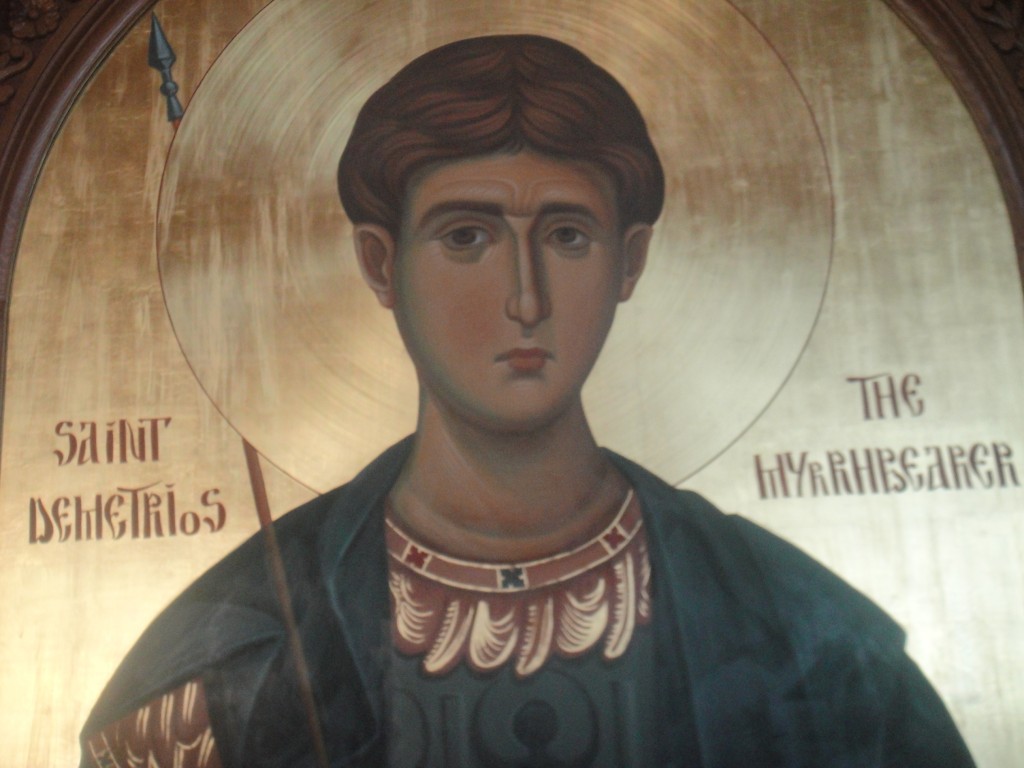Some thoughts on Californian religion, politics and, yes, some amateur theology too.
a. Ever heard of this one?
So, some ECHR judge walks into a classroom and meets the teacher. She has a PhD in Science. But she wears a headscarf. Sad, but true.
This is no joke though. If she were a teacher in some european countries, say Switzerland, she would have been ordered prohibited to do so. The authorities would have insisted on the secular character of the state. On the strict separation between public space and private convictions. On the need to preserve religious harmony. On the possibly proselytising effect of her wearing the headscarf. On the freedom of conscience and religion of very young children.
What a bunch of No. 2. I say, wear and let wear!
b. The need for religion-free holidays (should they even be called “holy” days?) backfires unexpectedly though. Side by side with Columbus Day and Veterans Day there is, oh, Presidents Day. This is supposedly a civic holiday, referring mainly to the Founding Fathers and especially to the birthday of George Washington. To my eye, it is more of a cult or a form of idolatry: the Romans used to burn incense before the statues of their Emperor (and demanded that Christians do so as well). The Americans are nothing short.

c. Many [too many!] people in California are religious, in their own unique american way. A devout American Christian will offer money to help Russian Jews emigrate to Israel, he will watch any of the world-infamous televangelists and, of course, he will listen to the right kind of music.

And he will build churches everywhere. There’s way too many of them. You’ve got Catholics. Baptists. Methodists. Episcopals. Presbyterians. 7th Day Adventists. Latter Day Saints. You name it.

d. Take Matthew for example. Hailing from a Mexican background in San José, Ca, he excelled as a Norteño as a teenager. Having been arrested for the first time at 10 for theft, he soon became a gang member. “I had a bad temper back then”, he says. I can only imagine. His gang career culminated in his arrest for attempted murder at age 18. Before even becoming an adult, Matthew had already lived many lives. Facing a possible 17 years though proved to be a life-changing experience. He became a born-again Christian. Now, he is self-employed and happily married. With 9 children, mind you. And don’t get me wrong, his spouse is no welfare queen. I met them on vacation with two of their offspring, a wonderful family [I confess, I was a little jealous actualy!]. Now Matthew is a totally different man; he takes 4th of July pictures with his family, wearing “United we stand” shirts, waving the Stars and Stripes. A good patriot, a good father, a good Christian, saved by Jesus. Good for him, no doubt.
e. Of course, there are Orthodox Christians too. A service by two priests, a Romanian and a Korean, conducted in English, Greek and Spanish, is something to remember. Something that celebrates pluralism, tolerance, multilingualism, unity.
But here comes the disgrace: the Orthodox Church in America is divided along ethnic lines. There’s the Greek Orthodox. Russian Orthodox. Serb Orthodox. Whatever-is-big-enough-Orthodox.

But this ecclesiology is evidently false. The Church, the continuing Body of Christ in history, cannot be torn, for there is no Greek or Russian in Christ. Our declaration of faith in the “catholic” Church suggests our commitment to erase national borders. Though it is possible for many local churches to exist within the same political entity, as is the case with Greece itself, there cannot be multiple overlapping Churches. Whether we as ethnic Greeks like it or not, hard as it might be, it must be heard: the time for an Orthodox Church in the USA is long overdue.
This one goes out to the ones I love, in a suburb far far away.
thanasi as far as i know Greek Orthodox churches hold services partly in Greek, Serb Orthodox in Serbocroat etc There is a language obstacle possibly, which of course is disappearing quite fast. But you know, Jews still learn Hebrew to go to their Synagogue!
Apart from that there is one thing all orthodox churches seem to have underestimated but you saw in action: the power of Christianity in Asia. While they are fighting to keep their control over a couple of million people in Europe, there are tens or hundreds of million in Asia who are very good candidates. Korea is already 30% Christian, China has up to 15% Christians. And Orthodoxy is actually closer to them, because the elaborate temples and rituals are closer to the Asian ones (protestant churches look pretty boring in comparison).
ΥΓ θανασης χωρις υποτακτικες, δεν ξερω κατι λειπει ρε γμτ. :)
No, actually there is not. Services should be conducted in the same language they are now, since there is no need for a common language. Each parish chooses its own. The change I propose would affect only the structure of the Church.
I don’t know about the 15% figure, but your point is valid. :-)
Great blog Thano. You hit the nail right on the head. I’ll make sure everyone reads this.
Thanks Niko! I appreciate your appreciation :-Ρ